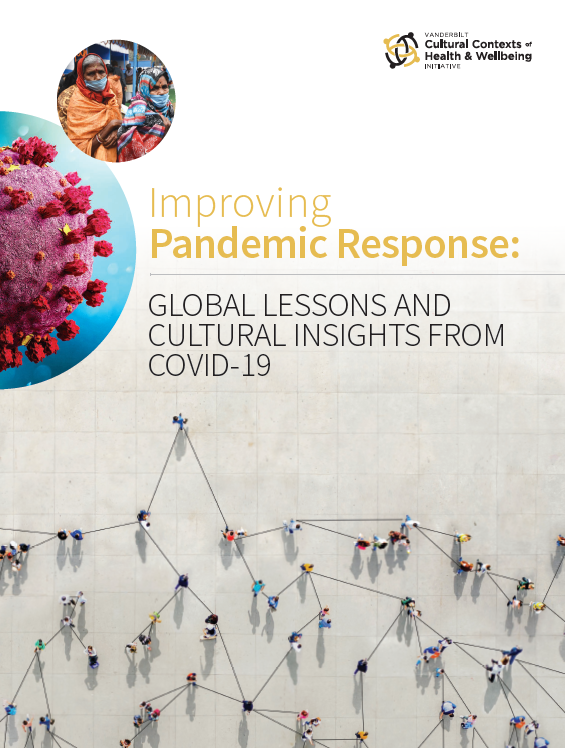
-
Download document
Inglês (pdf, 11,3 MB)
Improving pandemic response: Global lessons and cultural insights from COVID-19
The COVID-19 pandemic has laid bare stark differences in the effectiveness of public health responses across countries and communities. The United States has higher COVID-19 death rates than not only high-income peers such as Germany, Denmark, and Japan, but also lower-income countries such as Vietnam, Rwanda, and Uganda. This situation presents an opportunity to learn from global examples to improve pandemic responses, prepare for future health emergencies, and advance health equity.
By definition, pandemics are experienced collectively. Likewise, mitigation efforts are inherently social, requiring collective action. Relying on individual choice alone is insufficient. Public health requires public action: coordinated, systemic, and structural responses are needed. This brief will be useful to public health officials and policymakers at the federal, state, and local level in coping with the current pandemic and preparing for future crises.
Differences in COVID-19 death rates are correlated with key social and cultural factors, including trust, cohesion, inequities, and shared values. Cultural norms and social ties are what motivate people to act collectively or not. The virus is transmitted socially, and our collective behavioral responses to the pandemic stem from shared cultural values. Scientific skepticism, including vaccine hesitancy, results from lack of social trust as much as lack of information. These factors combine to produce vulnerabilities that cannot be fully addressed by medical interventions alone.
At the same time, the pandemic has shown how cultural assets, such as common identity, community traditions, and conceptions of hope, can be a source of creative response and resilience. To reduce transmission and mortality rates, focus on the root causes of inequities and resilience, and build trust in public health efforts, there is an urgent need to address the cultural as well as medical aspects of the pandemic.
A 2014 Lancet Commission found that “systematic neglect of culture in health and healthcare” is the greatest barrier to achieving equitable health outcomes worldwide.
WHO/Europe’s flagship initiative on the Cultural Contexts of Health and Wellbeing (CCH) offers a model for applying social science and humanities research to improve policy and interventions. A cultural contexts of health approach reframes our understanding of health, recognizing that individual lives and behaviors are shaped by cultural contexts and social interactions. In this view, culture is not opposed to science. Nor is it an obstacle to health care—a source of irrational beliefs to be overcome. Rather, it refers to shared, and ever-changing, conventional understandings about how the world works and our place in it. Cultural beliefs are just as “real” as viruses in that they motivate attitudes and behaviors—in policymakers, health providers, patients, and others—and they are an underappreciated source of creative possibilities and potential.
For this report, we consulted with 23 experts from around the world and conducted an extensive literature review of crosscultural experiences. Based on this research, we offer a series of recommendations for dealing with the acute issues associated with the current pandemic as well as the chronic underlying causes. We summarize our five recommendations below, each of which is explained in more detail in the subsequent sections.




